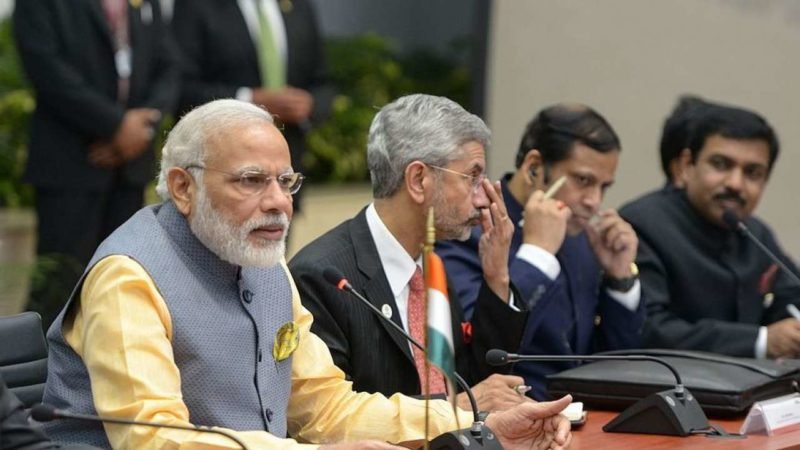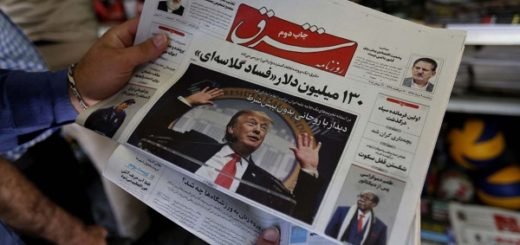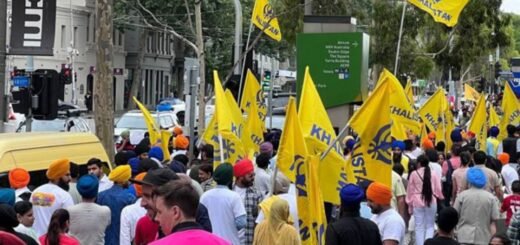Indian Diplomacy: Major Takeaways from 2019

From Howdy Modi! to Sawasdee Modi and from Wuhan to Mamllapuram a lot has been changed. This year has been the year of awards and recognitions. India has stabilized itself from past shackles and overcomes more rigorously while engaging with the world. We have transformed our wishes into actions. India has kept itself away from involving with Regional Comprehensive Economic Partnership (RCEP) while came closer with the Arab world more than ever before.
India has come with a policy of engaging the security spectra in its foreign policy. Surgical strike converted into Airstrike with no one opposing the decision. It was Indian Diplomacy which made Islamic Nations stand with India while restraining away with Pakistan. It was a high time when India showed the true face of Pakistan to the world. Pulwama attack in which 40 CRPF personal lost their lives was carried out by Jaish-e-Mohamad, a terror group based in Pakistan. The retaliation was much higher than ever before. It was India’s aura which forced Pakistan to free, Wing Commander Abhinandan Vardhaman within two days, who was in captivity of Pakistan.
2019 witnessed the general elections in which present government of Prime Minister Narendra Modi again came to power and this time invitation was given to BIMSTEC leaders at the swearing-in ceremony of the new government. Last time in 2014, it was SAARC leadership, which was invited at the occasion. This shows that India is now open to new engagements closer as well as away also.
Jammu and Kashmir have always been a major issue of discussion around the globe but in 2019 government removed Article 370 and 35A from the state of Jammu and Kashmir by bringing up the Jammu and Kashmir state reorganization act 2019, which took away the special status and made them two separate union territories. A lot of protests took place in and around the globe. Pakistan and China tried to utilize this opportunity to influence the world against India but it was again Indian diplomacy which finally managed it and placed this issue in the safe card.

India’s engagement with the United States could be seen as more conclusive. Prime Minister Modi and President Trump came up with personal engagements and avoid the contradictory issue to be tabled in front of the world. Trump who was enthusiastic for doing mediation between India and Pakistan himself made to accept that Kashmir is only a bilateral issue. Though there are many issues still pending between India and the US like the increase in trade tariffs and H1B visa.
India was invited at the G7 summit held at Biarritz in France. Although India is not a member of the G7 group, Prime Minister Modi attended the G7 Summit as a special guest as he was personally invited by French President Emmanuel Macron. India also joined the G20 summit help at Osaka, Japan of which India is a member country. India presented it as an inclusive approach to the future. The 5-I vision presented on Artificial Intelligence gained major attractions.
This year India’s showed a proactive strategy towards the security measures. Having military exercises with many countries including China and the US is a sign of its a commitment to making itself strong and more responsive to any amateur attempt of stagnating India’s sovereignty.
As the year come to end, India and China tried to resolve their border issue and assured that they will intensify their quest for the resettlement of border and other issues too. There was a consensus that both sides should respect each other’s sensitivities and concerns in order to build mutual trust, as this was important for the future development of bilateral relations.

Recently there have been some disturbances as India and Japan postponed a summit-level meeting between PM Modi and his counterpart Shinzo Abe after massive protests in Guwahati and other regions in the northeast over the passage of the Citizenship Amendment Act (CAA), which covers only non-Muslim refugees. The Bangladesh foreign minister also cancelled his India visit. We have not to let our internal issues impact foreign policy. There are some major steps required to be taken in this direction.
As we are entering in last year of this decade. There are many challenges which are still floating. We have to tackle them with more care, as this era is not that simple. War will not be based on military only. Economic stability is much required to remain in the race. We are much dependent on technology and everything today is in the clutches of artificial intelligence. Here the resources are shorter and everyone is prepared for the “war of need”. India also needs to focus on this. Maintaining the balance of power in the world is somewhere the responsibility of a country like India.


















